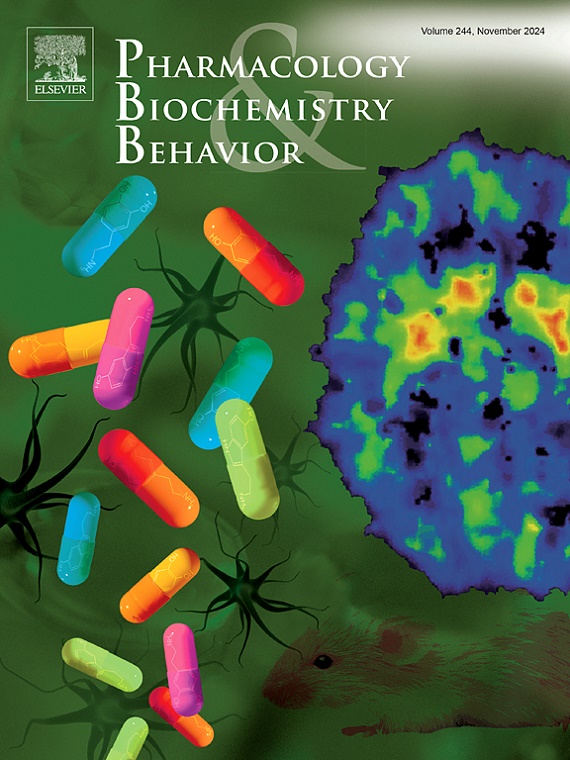产前母性压力诱导青春期小鼠后代的回避行为增加
IF 3.3
3区 心理学
Q1 BEHAVIORAL SCIENCES
引用次数: 0
摘要
防御行为是对潜在或实际威胁的本能反应,对物种的生存和繁殖至关重要。它受到遗传和环境因素的影响,并在个体的发展过程中不断变化。压力,作为一个重要的环境因素,对重塑一个人的行为有着深远而持久的影响,尤其是在生命早期经历的时候。然而,早期生活压力对防御行为的影响尚不清楚。本研究评估了暴露于产前压力下的青春期小鼠后代的防御行为。测定血清皮质酮和神经树突棘密度。行为学结果显示,产前应激显著增加雄性子代小鼠的焦虑样行为和回避行为。酶联免疫吸附试验(ELISA)结果表明,产前应激导致雄性后代在捕食者气味暴露后血清皮质酮水平显著升高。高尔基染色分析显示后代内侧前额叶皮层(mPFC)神经树突棘密度降低。这些发现表明,由产前压力引起的后代小鼠的行为改变可能与皮质酮水平和神经元结构的改变有关。然而,其原因和具体机制有待进一步研究。本文章由计算机程序翻译,如有差异,请以英文原文为准。
Prenatal maternal stress induces increased avoidance behavior in adolescent mice offspring
Defensive behavior is an instinctive response to potential or actual threats, crucial for the survival and reproduction of species. It is influenced by both genetic and environmental factors and undergoes continuous changes throughout an individual's development. Stress, as a significant environmental factor, has a profound and enduring impact on reshaping an individual's behavior, particularly when experienced during early life. However, the effects of early life stress on defensive behavior remain unclear. In this study, defensive behaviors were evaluated in adolescent mice offspring exposed to prenatal stress. Serum corticosterone and neural dendritic spine density were measured. Behaviors results showed that prenatal stress significantly increased anxiety-like and avoidance behaviors in male offspring mice. Enzyme-linked immunosorbent assay (ELISA) results indicated that prenatal stress led to a significant increase in serum corticosterone levels in male offspring following predator odor exposure. Golgi staining analysis revealed a decrease in neural dendritic spine density in the medial prefrontal cortex (mPFC) of offspring. These findings suggest that behavioral changes in offspring mice caused by prenatal stress may be related to alterations in corticosterone levels and neuronal structure. However, the causation and specific mechanisms require further investigation.
求助全文
通过发布文献求助,成功后即可免费获取论文全文。
去求助
来源期刊
CiteScore
6.40
自引率
2.80%
发文量
122
审稿时长
38 days
期刊介绍:
Pharmacology Biochemistry & Behavior publishes original reports in the areas of pharmacology and biochemistry in which the primary emphasis and theoretical context are behavioral. Contributions may involve clinical, preclinical, or basic research. Purely biochemical or toxicology studies will not be published. Papers describing the behavioral effects of novel drugs in models of psychiatric, neurological and cognitive disorders, and central pain must include a positive control unless the paper is on a disease where such a drug is not available yet. Papers focusing on physiological processes (e.g., peripheral pain mechanisms, body temperature regulation, seizure activity) are not accepted as we would like to retain the focus of Pharmacology Biochemistry & Behavior on behavior and its interaction with the biochemistry and neurochemistry of the central nervous system. Papers describing the effects of plant materials are generally not considered, unless the active ingredients are studied, the extraction method is well described, the doses tested are known, and clear and definite experimental evidence on the mechanism of action of the active ingredients is provided.

 求助内容:
求助内容: 应助结果提醒方式:
应助结果提醒方式:


